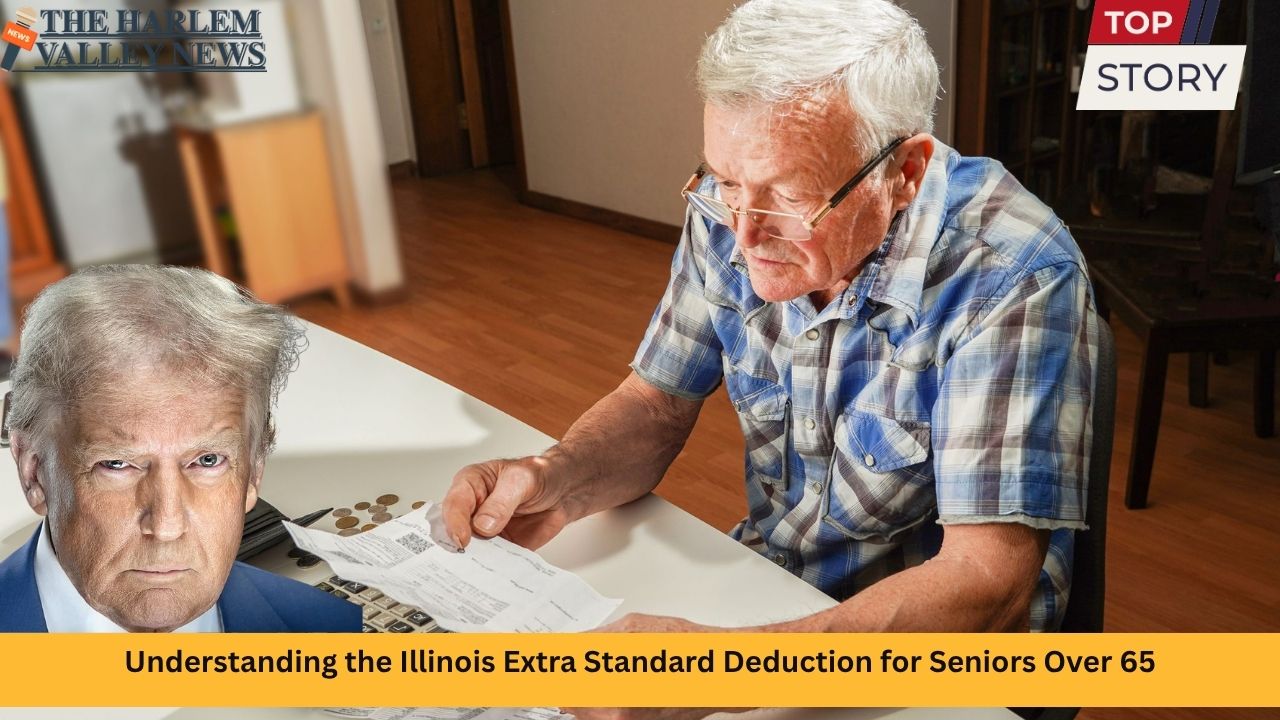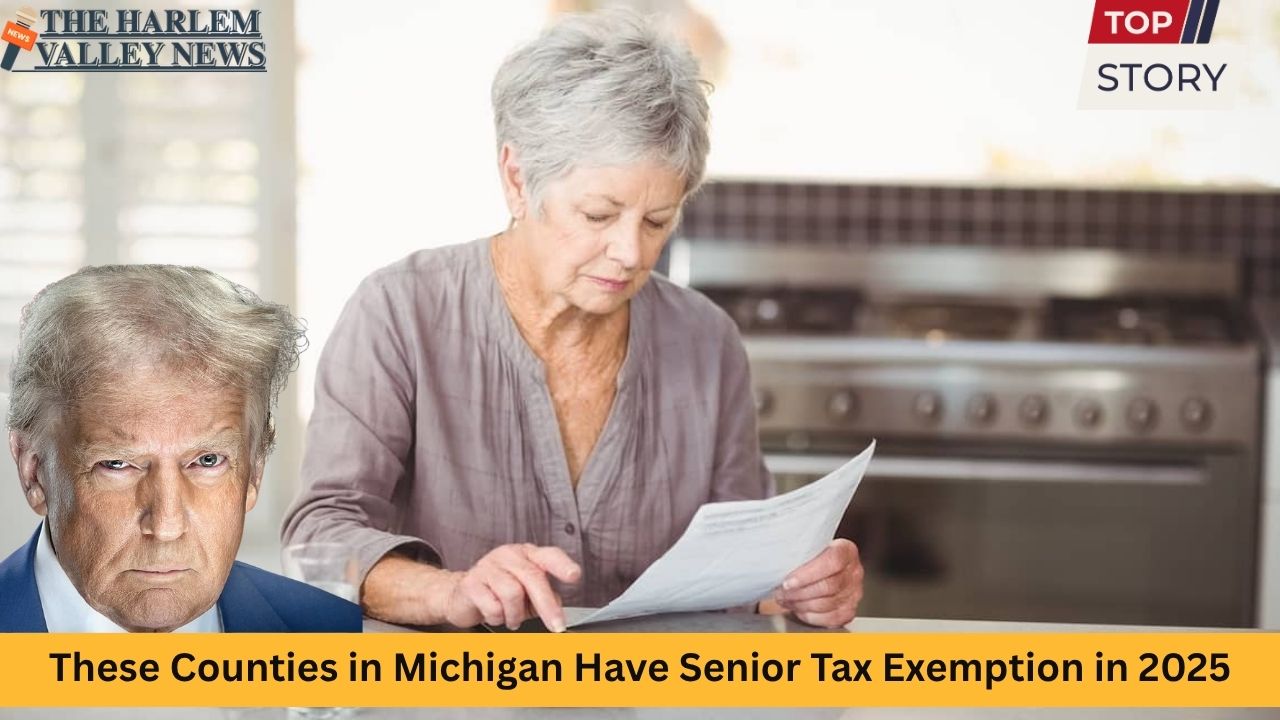For retirees and older adults across Illinois, understanding the intricacies of state and federal tax deductions is key to maximizing retirement income. With Illinois’ vibrant mix of cities like Chicago, Aurora, Springfield, Joliet, and Rockford hosting a growing population of residents aged 65 and above, the details of senior tax breaks could mean the difference between financial strain and comfort. This comprehensive guide will walk you through the current landscape of the Illinois extra standard deduction for seniors, highlighting the crucial mechanisms, eligibility criteria, recent changes, and local programs available throughout the state.
Illinois: A Hub for Seniors
Illinois is home to nearly 2 million residents aged 65 or older, spread across bustling urban centers and peaceful small towns. Communities in Cook County, DuPage, Lake County, and beyond contain large senior populations who benefit from targeted tax relief measures. With property taxes among the highest in the nation, especially in cities like Chicago and Naperville, extra state-level tax deductions and exemptions are essential tools for helping older residents retain more of their retirement income.
The Basics of Standard Deductions
The standard deduction is the fixed dollar amount that reduces the income on which you are taxed, effectively lowering your tax bill. Taxpayers may opt for the standard deduction or itemize their deductions, taking whichever option results in a lower overall tax liability. Every taxpayer receives the standard deduction, but seniors over 65 receive additional benefits at both the state and federal levels.
How It Works
If you are over 65, the IRS and the State of Illinois offer extra standard deductions on top of the regular standard deduction to further reduce your taxable income. These deductions apply regardless of whether you are in Chicago, Peoria, Champaign, or any other Illinois locality.
Federal Standard Deduction Enhancements for Seniors
While this article focuses mainly on Illinois, it’s essential to understand federal rules because state tax forms often use numbers from your federal return as a starting point.
For 2025, the federal standard deduction amounts are:
-
$14,600 for single filers and those married filing separately.
-
$21,900 for heads of household.
-
$29,200 for married couples filing jointly and surviving spouses.
Seniors 65 and older receive an additional standard deduction:
-
Single or head of household: Extra $2,000.
-
Married filing jointly or surviving spouse: Extra $1,600 for each qualifying spouse.
As an example, a married couple living in Springfield, both aged 65, would receive a total additional deduction of $3,200 on top of their standard deduction when filing jointly.
The Illinois Extra Standard Deduction: How It Differs from Federal
Illinois does not directly mirror the federal standard deduction. Instead, the state offers a personal exemption allowance and several attractive programs designed to specifically benefit seniors.
Personal Exemption Allowance
For the 2025 tax year, the personal exemption amount in Illinois is $2,850 per person. For seniors 65 and older and those who are legally blind, there is an additional $1,000 exemption. That means a Marion resident aged 67, for example, could claim the standard exemption plus the $1,000 senior bonus.
However, this exemption is not available for taxpayers with an adjusted gross income above certain thresholds ($250,000 for most filers, $500,000 for married couples filing jointly).
How to Claim the Senior Exemption
Eligibility for the extra personal exemption is straightforward: If you turn 65 any time during the year, you can claim the senior exemption for that year. This applies equally to seniors in Rockford, Belleville, and Galena. Marking the correct section on your IL-1040 state tax return secures the benefit.
Recent Changes in Illinois Senior Tax Benefits
Illinois periodically adjusts its tax code to keep pace with inflation and cost-of-living changes. Several updates have recently taken effect:
-
The base personal exemption has been increased for the 2025 tax year, now at $2,850.
-
The additional senior exemption remains $1,000.
-
Property tax deferral and exemption thresholds have increased, ensuring broader eligibility.
These changes provide real, measurable benefits, especially in high-cost cities such as Evanston, Oak Park, or Schaumburg.
Property Tax Relief for Illinois Seniors
Seniors in Illinois can also benefit from robust property tax relief programs to make homeownership more affordable during retirement.
Senior Citizens Real Estate Tax Deferral Program
Available statewide—including in Cook, Kane, and Winnebago counties—this program allows homeowners aged 65 and above to defer up to $7,500 per year of property taxes on their primary residence. This functions as a state-backed loan, with the state paying the county, and the sum repaid with 3% interest upon sale, transfer, or inheritance of the property.
Key requirements:
-
Household income of $65,000 or less.
-
Ownership and residency for at least three consecutive years.
-
Adequate insurance and no delinquent taxes.
Senior Citizens Homestead Exemption
This statewide exemption reduces the assessed valuation of qualifying homes owned by seniors, resulting in a direct reduction of the property tax bill. Counties such as DuPage offer up to $8,000 in reduced valuation for qualified seniors.
Assessment Freeze Homestead Exemption
The Low-Income Senior Citizens Assessment Freeze Homestead Exemption locks in the assessed value of a senior’s home, preventing property tax increases due to rising home values for qualifying homeowners with annual incomes below set limits.
Local Senior Tax Benefits: City Highlights
Let’s spotlight how senior tax benefits play out in different Illinois cities:
Chicago: With its high property values and taxes, programs like the Senior Citizens Real Estate Tax Deferral and the Homestead Exemption can mean thousands in savings for older homeowners. The city also offers workshops through local libraries and senior centers to help residents apply for exemptions.
Aurora: Illinois’ second-largest city features active outreach from the county assessor’s office, streamlining access to property tax deferral and exemption applications.
Springfield: As the state capital, Springfield has neighborhood resource offices to assist seniors in navigating tax relief programs, keeping more money in retirees’ pockets.
Peoria, Rockford, Joliet: Local governments in these regional hubs publicize annual deadlines and host sessions to help seniors benefit from state-wide and city-specific tax breaks.
Integrating State and Federal Benefits
An individual living in Naperville, for example, would combine the federal standard deduction and extra senior deduction with the Illinois personal and senior exemptions. If they also own their home, they may qualify for one or more property tax reliefs at the local and county level.
For a couple, both aged 68 living in Oak Lawn:
-
Each gets the federal standard deduction for their filing status.
-
Each receives the extra deduction for being 65+.
-
On the Illinois state return, both claim the personal exemption plus the senior additional exemption.
-
If they own their home, they may qualify for the Senior Citizens Homestead Exemption and even the Assessment Freeze if household income is low enough.
The cumulative result is a significantly reduced taxable income and, therefore, a lower overall tax bill.
Navigating the Application Process
Federal and State Tax Filings
The extra standard deduction and personal exemption for seniors are claimed directly on federal and state tax returns:
-
For the IRS, check the age box when completing the standard deduction worksheet.
-
On the Illinois IL-1040, fill in the section for the senior citizen exemption.
Property Tax Exemptions and Deferrals
Applications for property tax programs are typically made through the local county assessor or collector’s office. The deadline for the Senior Citizens Real Estate Tax Deferral is usually March 1 each year.
Given Illinois’ diverse population and local government structures, it is advisable to contact the city or county office, such as Cook County Assessor or Will County Supervisor of Assessments, for personalized assistance. Local programs in cities like Wheaton, Decatur, and Bloomington may offer further help.
Special Considerations and Limitations
There are essential limitations to keep in mind:
-
High-income seniors may not qualify for some exemptions.
-
The property tax deferral program only covers a percentage of the home’s equity.
-
Some programs require annual applications, so mark reminder dates each year.
-
For married couples, both need to meet age requirements to claim the full additional benefit.
The Broader Impact: Supporting Seniors Statewide
The combination of federal and Illinois extra standard deductions and property tax relief measures grants Illinois seniors more financial flexibility and security in retirement. These programs help seniors stretch fixed incomes, maintain homeownership, and manage living costs amidst rising expenses statewide.
In the city of Champaign, nearly one out of five residents is now aged 65 or older. About 12% of residents in Joliet, Aurora, and Rockford also fall within this age bracket. The compounded annual tax savings from senior-eligible deductions and exemptions can allow seniors to allocate more funds toward healthcare, medication, and community engagement.
Practical Tips for Illinois Seniors
-
Double-check eligibility: Each program has age and sometimes income restrictions.
-
Apply annually: Many benefits require reapplication each year.
-
Seek local help: City and county offices offer free assistance; for example, DuPage County and Kane County both have active senior outreach programs.
-
Ask about other benefits: Beyond deductions, Illinois offers credits and rebates for seniors, as well as counseling programs to guide you through the process.
Looking Ahead
With continuing inflation and evolving policies, Illinois occasionally revises both deduction amounts and eligibility criteria. Seniors—especially those living in higher-tax areas like Chicago suburbs, Lake Forest, or Oak Park—should keep up with adjustments each year to ensure optimal savings.
Tax laws are subject to change, and special legislative acts can introduce temporary boosts to deductions or additional relief programs. For instance, proposals for larger “one-time only” senior deductions sometimes arise in response to tough economic times.
Final Thoughts
Understanding and leveraging the Illinois extra standard deduction for seniors over 65 is crucial for financial health in retirement. Whether you live in the heart of Chicago, the far reaches of Carbondale, or a bustling community like Aurora or Springfield, claiming every dollar you are entitled to can significantly improve your standard of living. Take advantage of these benefits, seek support from local agencies, and ensure you claim the full array of deductions available. Staying informed and proactive each tax season ensures that your golden years in Illinois can truly be as secure and enjoyable as possible.













Leave a Reply